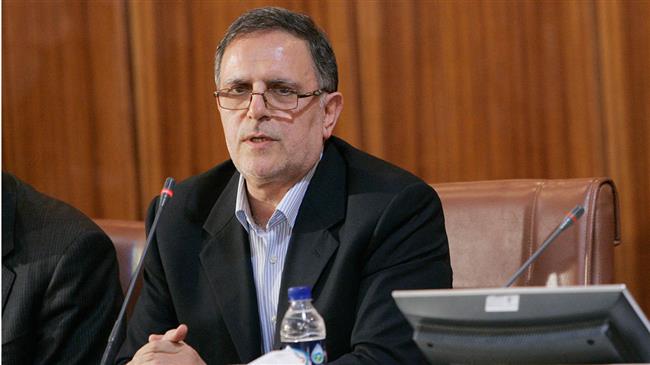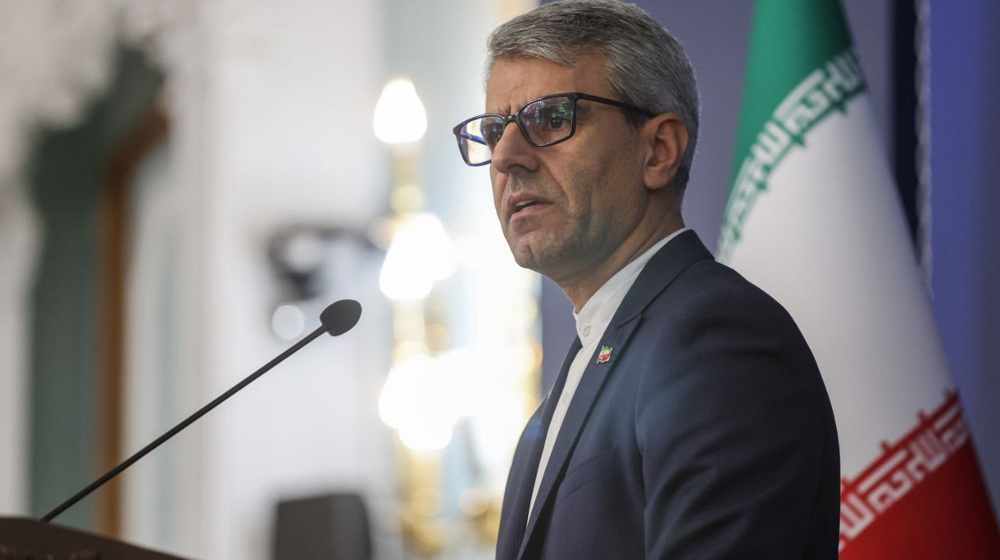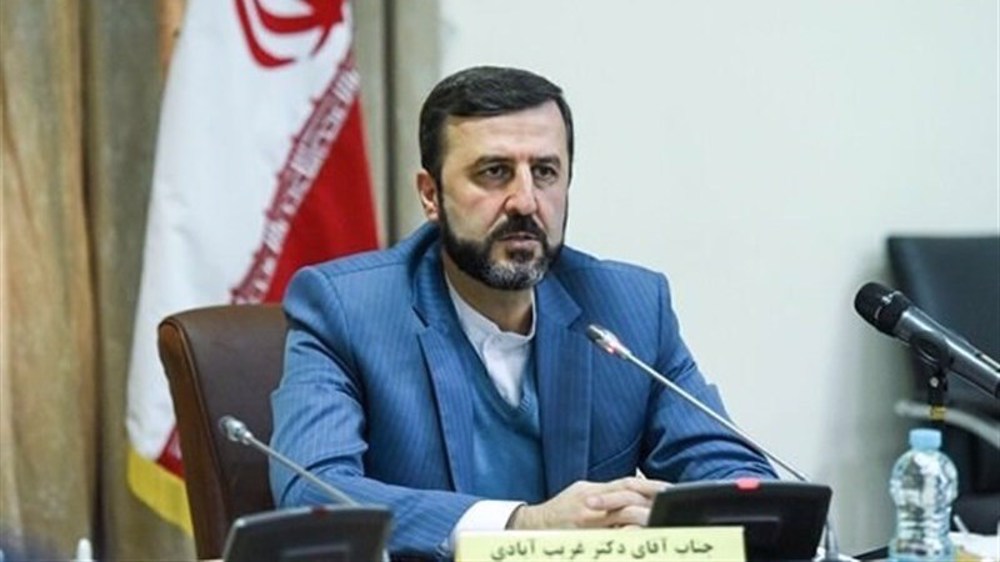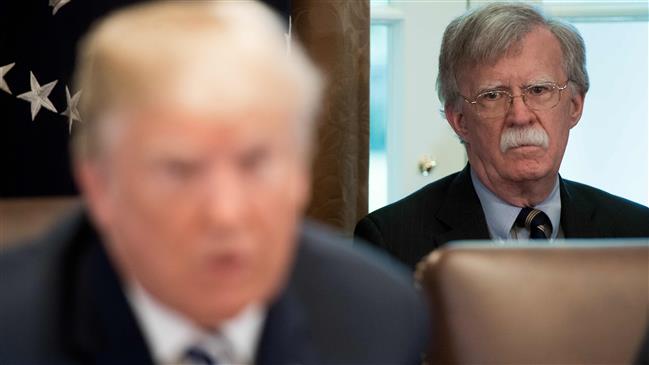US imposes sanctions against governor of Iran’s Central Bank
The US has imposed sanctions against governor of Iran's central bank Valiollah Seif and Iraq-based Al-Bilad Islamic Bank for transferring “millions of dollars" for Iran's Islamic Revolution Guards Corps (IRGC).
US Treasury Secretary Steven Mnuchin said on Tuesday Seif covertly moved millions of dollars on behalf of the IRGC through Al-Bilad bank "to enrich and support the violent and radical agenda of Hezbollah."
The United States has classified Lebanon's Hezbollah resistance movement as a terrorist group.
The Treasury also blacklisted assistant director of the international department of Iran's central bank Ali Tarzali and the chairman of Al-Bilad Islamic Bank Aras Habib.
US President Donald Trump announced on May 8 that Washington was walking away from the 2015 nuclear deal, known as the Joint Comprehensive Plan of Action (JCPOA), which was reached between Iran and the five permanent members of the UN Security Council -- the US, Britain, France, Russia and China -- plus Germany.
Under the JCPOA, Iran undertook to put limits on its nuclear program in exchange for the removal of nuclear-related sanctions imposed against Tehran.
Trump also said he would reinstate US nuclear sanctions on Iran and impose "the highest level" of economic bans on the Islamic Republic.
After the announcement of Trump's position on the JCPOA, the US Treasury said in a statement on its website Thursday that it imposed fresh sanctions on six people allegedly tied to the Quds Force of the IRGC and three Iranian entities.
Iran has said it would remain in the JCPOA for now, pending negotiations with the other signatories in the coming weeks before making a final decision on its future role in the agreement. Tehran wants the Europeans to give it clear-cut guarantees about fulfilling their obligations if it remains in the accord.
In an effort to try and rescue the nuclear deal, Iranian Foreign Minister Mohammad Javad Zarif launched a diplomatic tour early on Sunday which took him to Brussels following visits to Beijing and Moscow. He began the visit on President Rouhani's order to sound out Europe and other parties to the JCPOA about the possibility of keeping the deal in place.
Zarif on Tuesday met EU foreign policy chief Federica Mogherini ahead of evening talks with his counterparts from Britain, France and Germany.
Russia, China and the three European signatories to the JCPOA have expressed their determination to preserve the landmark Iran nuclear deal.
The US has given companies a 180-day wind-down period before the sanctions are reimposed on Iran, but European business entities say they do not want to take any chances as some transactions may spill over into the sanctioned period.
Mindful of Western sanctions in 2011 which entailed in a number of hefty penalties, European entities err on the side of caution. However, unlike the past, this time it is only the US that has declared its intention to reimpose sanctions on the Islamic Republic.
Even that has not persuaded some European companies to stay their ground and continue business, meaning they need greater protection guarantees from their governments.
Iran has given the Europeans 60 days to guarantee that business ties with the country will continue as the remaining signatories to the nuclear deal are scrambling to save it.
However, some companies are already responding to the US call to disengage from Iran and stop trade with the country.
Danish shipping companies Maersk Tankers and Torm were reported on Tuesday to have stopped taking new orders in Iran as the countdown begins for the restoration of US sanctions on the Islamic Republic.
US-funded hepatitis B study in West Africa sparks ethical concerns
Chinese, South African naval commanders visit Iranian task group in Cape Town
Iran condemns G7 hypocrisy on human rights following interventionist statement
VIDEO | US, Israel role in terror attacks in Iran
VIDEO | Death behind bars: Gaza’s prisoners. silence surrounding them
60,000 weapons bound for Tehran seized as Mossad-trained terror cell busted
VIDEO | 13th day of war
Israeli strikes kill two in Lebanon as UNIFIL warns against ceasefire violations














 This makes it easy to access the Press TV website
This makes it easy to access the Press TV website